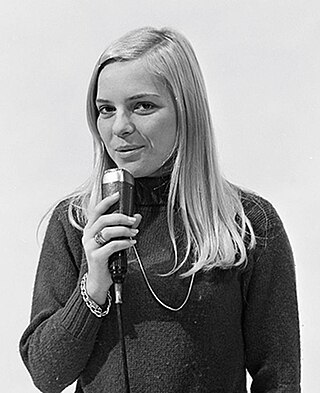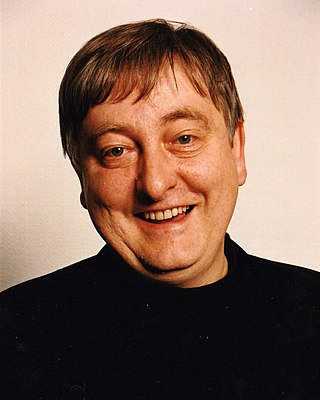
Serge Gainsbourg was a French singer-songwriter, actor, composer, and director. Regarded as one of the most important figures in French pop, he was renowned for often provocative releases which caused uproar in France, dividing public opinion. His artistic output ranged from his early work in jazz, chanson, and yé-yé to later efforts in rock, zouk, funk, reggae, and electronica. Gainsbourg's varied musical style and individuality make him difficult to categorise, although his legacy has been firmly established and he is often regarded as one of the world's most influential popular musicians.
In France, music reflects a diverse array of styles. In the field of classical music, France has produced several prominent romantic composers, while folk and popular music have seen the rise of the chanson and cabaret style. The oldest playable musical recordings were made in France using the earlist known sound recording device in the world, the phonautograph, which was patented by Édouard-Léon Scott de Martinville in 1857. France is also the 5th largest market by value in the world, and its music industry has produced many internationally renowned artists, especially in the nouvelle chanson and electronic music.

Isabelle Geneviève Marie Anne Gall, known professionally as France Gall, was a French yé-yé singer. In 1965, at the age of 17, she won the tenth edition of the Eurovision Song Contest with the song "Poupée de cire, poupée de son", representing Luxembourg. Later in her career, she became known for her work with singer-songwriter Michel Berger, whom she married in 1976. Her most successful singles include "Résiste", "Ella, elle l'a" and "Évidemment".

Jacques Dutronc is a French singer, songwriter, guitarist, composer, and actor. Some of Dutronc's best-known hits include "Il est cinq heures, Paris s'éveille", "Le Responsable", and "Les Cactus".
French rock is a form of rock music produced in France, primarily with lyrics in the French language.
Yé-yé or yeyé was a style of pop music that emerged in Western-Southern Europe in the early 1960s. The French term yé-yé was derived from the English "yeah! yeah!", popularized by British beat music bands such as the Beatles. The style expanded worldwide as the result of the success of figures such as French singer-songwriters Sylvie Vartan, Serge Gainsbourg and Françoise Hardy. Yé-yé was a particular form of counterculture that derived most of its inspiration from British and American rock and roll. Additional stylistic elements of yé-yé song composition include baroque, exotica, pop, jazz and the French chanson.

Alain Bashung was a French singer, songwriter and actor. Credited with reviving the French chanson in "a time of French musical turmoil", he is often regarded in his home country as the most important French rock musician after Serge Gainsbourg. He rose to prominence in the early 1980s with hit songs such as "Gaby oh Gaby" and "Vertige de l'amour", and later had a string of hit records from the 1990s onward, such as "Osez Joséphine", "Ma petite entreprise" and "La nuit je mens". He has had an influence on many later French artists, and is the most awarded artist in the Victoires de la Musique history with 12 victories obtained throughout his career.
Victoires de la Musique are an annual French award ceremony where the Victoire accolade is delivered by the French Ministry of Culture to recognize outstanding achievement in the music industry. The classical and jazz versions are the Victoires de la musique classique and Victoires du Jazz.
French pop music is pop music sung in the French language. It is usually performed by singers from France, Canada, Belgium, Switzerland, or any of the other francophone areas of the world. The target audience is the francophone market, which is considerably smaller than and largely independent from the mainstream anglophone market.
The Grand Prix du Disque for French Song is one of a number of prizes awarded by L'Académie Charles Cros as part of the yearly Grand Prix du Disque. The following is a partial list of winners :

Pierre Delanoë, born Pierre Charles Marcel Napoléon Leroyer in Paris, France, was a French lyricist who wrote thousands of songs for dozens of singers, including Dalida, Edith Piaf, Charles Aznavour, Petula Clark, Johnny Hallyday, Joe Dassin, Michel Sardou and Mireille Mathieu. Delanoë was his grandmother's maiden name.
Jean-Claude Vannier is a French musician, composer and arranger. Vannier has composed music, written lyrics, and produced albums for many singers.

Didier René Henri Barbelivien is a French author, lyricist, songwriter and singer. Beginning in the 1970s, he wrote a number of successful songs for artists such as: Dalida, Johnny Hallyday, Michel Sardou, Daniel Guichard, Claude François, Gilbert Montagné, Sylvie Vartan, Patti Layne, Gilbert Bécaud, Enrico Macias, Demis Roussos, Mireille Mathieu, Hervé Vilard, Michèle Torr, C. Jérôme, Christophe, Julio Iglesias, Sheila, Nicole Croisille, Patricia Kaas, Éric Charden, Jean-Pierre François, Michel Delpech, Philippe Lavil, Elsa, Gérard Lenorman, Ringo, Garou, Corynne Charby, David and Jonathan, and Caroline Legrand among others.
Michèle Arnaud, was a French singer, recording artist, and director. She was buried on 18 September 1998 at Montparnasse Cemetery. She is the mother of the singer Dominique Walter and the photographer Florence Gruère.
Salut les copains is a series of albums released through Universal Music France to commemorate the best of music featured in French scene as sponsored by the "Salut les copains" radio program in France and the French Salut les copains magazine. The tracks include French original singles, French-language covers of known hits as well as European and American hits popular in France. The track list is a representative wide selection of the "Yé-yé" generation of French music.

Marcel Amont was a French singer of the 1960s and 1970s. Amont also recorded in Occitan and promoted Bearn culture from the 1950s.

Yann Benoist is a French session guitarist, performer, singer, composer, conductor, and arranger.

Yvan Dautin is a French actor, writer, and singer. His best known songs are "Boulevard des Batignolles", written with Étienne Roda-Gil, and "La Méduse".








